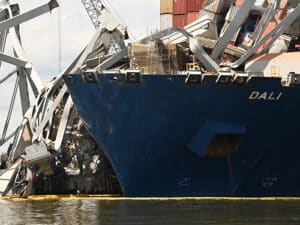
BWM convention: Headaches ahead for owners
Written by Nick Blenkey
SEPTEMBER 9, 2016 — Shipowner organizations continue to express concerns about the IMO Ballast Water Management Convention which comes into force September 8, 2017.
At the heart of their concerns are doubts on whether ballast water treatment systems meeting current IMO standards will actually work that well. And though the U.S. is imposing tougher standards, no systems have yet achieved full U.S. Coast Guard type approval.
As we reported yesterday (see story), Eben Poulsen, Chairman of the International Chamber of Shipping said “We must ensure that shipowners can have absolute confidence that the expensive equipment they will soon have to install will be effective in treating ballast water conditions normally encountered during worldwide operations and be regarded as fully compliant during Port State Control inspections.”
ICS also said that there “is still great uncertainty with respect to the more stringent United States approval regime for treatment equipment, which started to be enforced in January 2014 (the U.S. not being a Party to the IMO Convention).”
Similar concerns are being voiced by Intertanko and BIMCO.
Intertanko “cautiously welcomed” news of the entry Into force of the IMO convention, but its Environment Director, Tim Wilkins, said that while IMO revised type approval guidelines are likely to be completed in advance of the entry into force of the convention, “there remains uncertainty as to when an owner will be able to install ‘second generation’ ballast water management systems actually tested and approved using the amended guidelines,” placing some “in the position of having to install ‘first’ generation ballast water management systems at substantial expense that may not work and/or may not meet the environmental objectives of the convention.”
In Washington, Intertanko’s Deputy Managing Director, Joe Angelo, noted that: “The early ratification adds a further complication when considering the lack of availability of any USCG type approved systems.”
“This situation puts owners at the risk of having to install an IMO type approved system that may never achieve USCG type approval,” said Mr. Angelo. “If the chosen system does not obtain USCG approval, it will have to be replaced within five years in order to continue to trade to the US. A shipowner, who in good faith wants to comply with international and national ballast water management requirements, therefore faces an unacceptable position of having to possibly invest twice in a BWMS through no fault of his or her own.”
Meantime, in Copenhagen, BIMCO Deputy Secretary General Robert Pederson said that BIMCO, “is deeply concerned about the prospect of our members having to install treatment systems now which later may not be approved for use in U.S. waters. This is because the U.S. has not yet approved treatment systems that comply to its own, more stringent, national standards.”
He added that “BIMCO is also concerned that systems approved to the present IMO standards are not robust enough to ensure that systems onboard real ships perform to the regulatory requirements to treat ballast water.”





Leave a Reply
You must be logged in to post a comment.